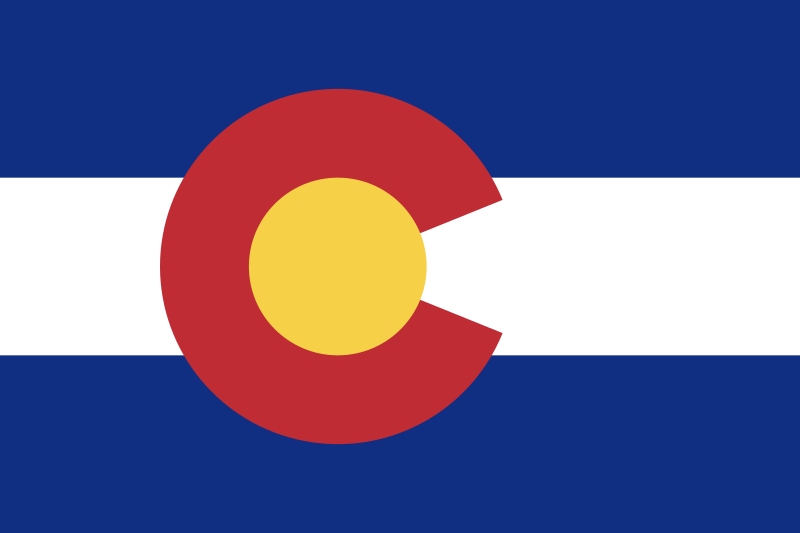Colorado voters may decide in 2024 on an initiative that would cap state property tax revenue at 4% over the total revenue collected in the preceding year. The initiative would require statewide voter approval to allow local governments to retain property tax revenue exceeding the 4% growth limit.
The initiative was sponsored by Advance Colorado Institute, a think tank that promotes "limited government, free enterprise, low taxes, and public safety." Michael Fields, initiative proponent and president of Advance Colorado Institute, said, "Coloradans are facing a property tax crisis. Since the legislature has failed to act, citizens are moving this measure forward to allow the voters to decide if they want to cap property tax increases. While this measure won’t impact the spike in property taxes next year, it will have a significant impact in future years."
The Colorado Legislative Council Staff forecasted that assessed property values would increase by 4.7% for property tax year 2025, and, assuming a proportional increase in property tax revenue growth, statewide voter approval would be required to allow local governments to retain property tax revenue above the 4% cap, estimated to be about $115 million.
Scott Wasserman, president of the progressive Bell Policy Center, said, "This is exactly the kind of a train wreck our state is trying to avoid, where there is a hard cap for the entire state's property tax revenue. One of the biggest lessons we learned from the Gallagher Amendment was to not use total statewide property tax values as a measure. It creates a decision where someone from Lamar is making a decision for someone in Glenwood Springs. It's an example of what happens if we don't enact balanced property tax reform."
In 2020, Colorado voters approved a constitutional amendment to repeal what was known as the Gallagher Amendment, which limited the residential and non-residential property tax assessment rates so that residential property taxes equaled 45% of the total share of state property taxes and non-residential property taxes equaled 55% of the total share of state property taxes.
On Nov. 7, Colorado voters will decide on Proposition HH, which would reduce property tax rates and allow the state to retain and spend revenues that would otherwise be refunded to residents under TABOR. Proposition HH would allocate this revenue to local governments for the purpose of making up lost tax revenues from the property tax rate reduction. Proposition HH would create a limit on local government property tax revenue unless the district adopts a resolution or ordinance to exceed the limit. The measure would make other changes to property tax law and create a Proposition HH Cap on state revenue.
Colorado has a Taxpayer's Bill of Rights, known as TABOR, which limits state revenue and requires voter approval for all new taxes, tax rate increases, extensions of expiring taxes, mill levy increases, valuation for property assessment increases, or tax policy changes resulting in increased tax revenue. TABOR limits the amount of money the state of Colorado can take in and spend. It limits the annual increase for some state revenue to inflation plus the percentage change in state population. Any money collected above this limit is refunded to taxpayers unless the voters allow the state to spend it.
Advance Colorado Action opposes Proposition HH. Michael Fields said, “The repeal of the Gallagher Amendment was supposed to make things better, but I opposed it because it would inevitably lead to huge increases in property taxes for Colorado families. That is exactly what we are seeing across the state. The legislature created this problem. They said they would come up with a solution and they didn’t. Now, the governor and legislature want us to give up our TABOR tax refunds for a tiny bit of property tax relief. Proposition HH is another bad idea.”
In 2021, the state legislature passed a bill that temporarily lowered tax rates for various properties for 2022 and 2023. In 2022, another bill was passed, further adjusting rates for 2023 and 2024. The residential property assessment rate was 6.765% in 2023. Under current law, the rates were set to be 6.976% for single-family and 6.8% for multifamily homes in 2024 and 7.15% in 2025.
Under Proposition HH, rates would be reduced to 6.7%, and the valuation adjustment (currently $15,000) would be increased to $50,000 in 2023 and $40,000 in 2024 and 2025.
Property tax revenue in Colorado is collected by local governments and funds county government, public schools, junior colleges, and special districts. Colorado has not had a statewide property tax since 1964. The state sets assessment rates and local governments set the tax rate (mills) that are levied on the assessed value of the property. For 2025, the statewide average levy was forecast to be around 85 mills. For example, for a $500,000 home, the 2025 assessment rate of 7.15% means that $35,750 is taxable. The local government's tax rate would apply to the $35,750. For example, a tax rate of 85 mills would mean that $3,038.75 would be owed for property taxes on the house.
Additional reading:



